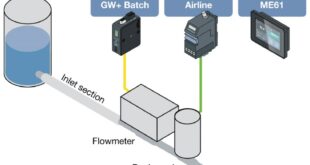Emissions data must be used to its full potential to help organisations stay on track to achieve their net-zero targets.
However, Capgemini Research Institute’s newest report, Data for Net Zero: Why data-powered intelligence is key to bridging the gap between net-zero ambition and action, finds that while a vast majority of organisations recognise the value of emissions data (85%), nearly half of those (48%) are not well positioned enough to use this data to drive decision making. Currently, organisations are mostly using emissions data to measure sustainability performance and rarely to improve existing processes or to identify opportunities for emissions’ reductions. By developing robust better data management and industry-wide collaboration capabilities there is a huge opportunity for organisations to improve their sustainability footprint across the value chain.
The report, which surveyed over 900 organisations that set net-zero targets in the last two years, found that over half (53%) of those that have embedded emissions data into their decision-making are already reaping the benefits. These include an average reduction of emissions of 4.6% on top of their existing sustainability measures, and improved transparency.
Managing and collecting data on Scope 3 emissions is particularly challenging for most organisations. On average, Scope 3 emissions are estimated to account for up to 95% of a company’s carbon footprint, yet just 24% of organizations reported moderate or high levels of awareness of which suppliers account for most of their emissions in this category. Furthermore, less than a third (30%) of organisations measure emissions from purchased goods and services, and only 27% measure emissions from the use of sold products. This is driven partly by a lack of confidence in the data which organisations collect, as this is often based on industry estimates and third-party data. Another reason is a lack of carbon accounting skills, which results in many organisations not having the expertise or understanding of how to measure emissions and how to apply this data to decision-making.
Skilling and collaboration vital to the improvement
Significant collaboration with the wider ecosystem to provide access to reliable emissions data is fundamental to making progress on an organisation’s net zero journey highlights the report. Currently, less than a third (32%) of organisations say that they are participating in data ecosystem initiatives to share emissions data with external entities such as NGOs, competitors, suppliers, and customers. To reach net zero, organisations will need to work closely with their suppliers to help improve their capabilities to measure and manage their emissions.
Capgemini’s research also highlights the need for a robust data management foundation that enables organisations to collect, consolidate and optimise data from multiple sources as a key parameter towards smarter, data-led net zero progress. This calls for establishing mechanisms to ensure decarbonisation accountability across the organisation, defining clear carbon KPIs for business teams and greater investment in carbon accounting skills.
Additionally, 67% of organisations cited the lack of carbon accounting skills as a key challenge in emissions measurement and reporting. At the same time, very few organisations (7%) are investing in awareness and upskilling their employees on carbon emissions. Addressing this could help bridge the skills shortage.
Zhiwei Jiang, CEO of the Insights & Data Global Business Line and member of the Group Executive Committee at Capgemini, said: “While organisations and governments might have set net-zero targets which are five, ten, thirty years away, that doesn’t mean sustainability is a future problem. Our planet is in crisis right now. And if you want to track your progress; if you want to make headway on new regulation or legislation; if you want to respond to consumer demands – data and analytics are the entry point. Too few are taking a truly data-driven approach in their journey towards these targets. Collaboration also plays a crucial role here – be it across the value chain or through global alliances to collectively improve emissions management systems. Organisations must also invest in carbon accounting talent and define clear emission targets so that they can move from ambition to action.”
 Engineer News Network The ultimate online news and information resource for today’s engineer
Engineer News Network The ultimate online news and information resource for today’s engineer



